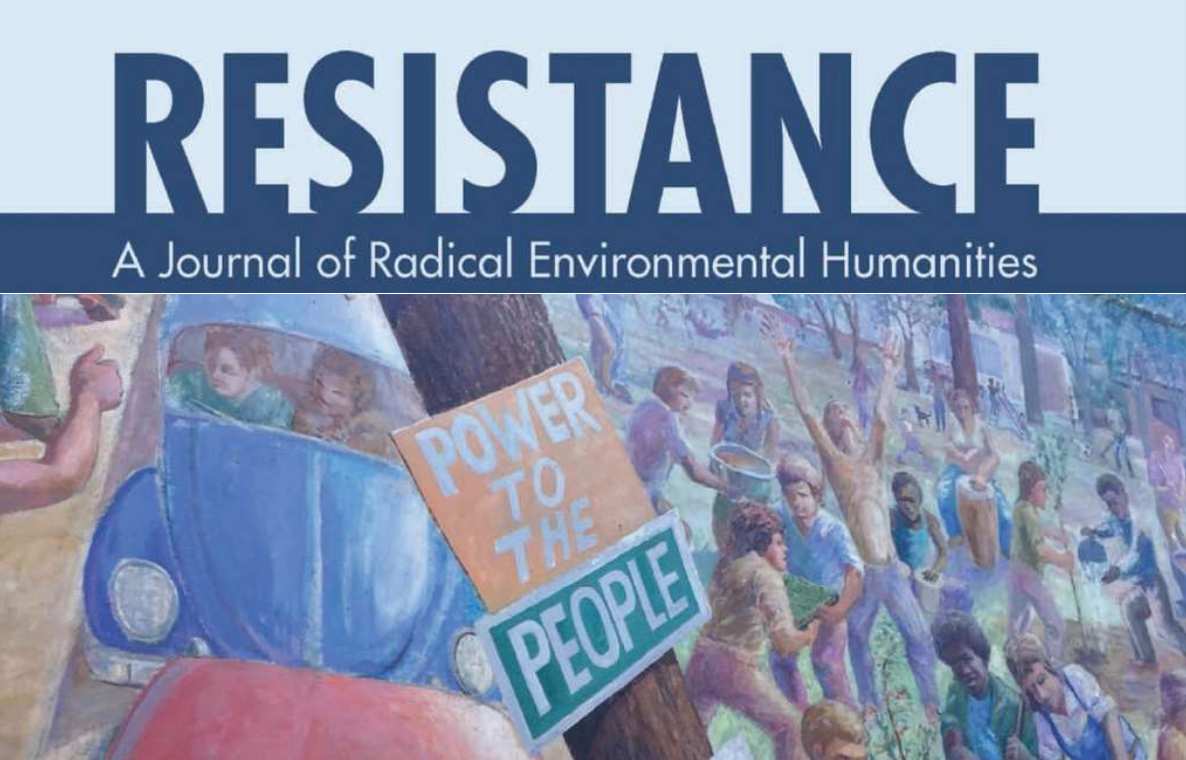
10 Jul Announcing a new(ish) Environmental Humanities journal
RESISTANCE: A Journal of Radical Environmental Humanities
Marco Armiero, Editor-in-chief
From Resilience to Resistance: An Almost New Journal for Environmental Humanities
Resilience: A Journal of Environmental Humanities is entering a new phase in its evolution. Under the leadership of the new editor-in-chief, Marco Armiero, the journal is undergoing a significant transformation and will now be known as Resistance: A Journal of Radical Environmental Humanities. This change in title is designed to provide clarity about the journal’s intellectual direction in its new series.
Resistance: A Journal of Radical Environmental Humanities is truly interdisciplinary. We welcome contributions from any discipline or interdisciplinary blend. Additionally, we are open to non-academic submissions, including creative writing, poetry, octivist reports, and other forms of expression. While submissions can vary in length, please note that we will not publish texts exceeding 7,000 words. We encourage you to share proposals for special issues, intervention series, experiments, or any other innovative projects with us.
Journal website: https://nebraskapressjournals.unl.edu/journal/resistance-a-journal-of-radical-environmental-humanities/
While ‘resilience’ pertains to the ability to endure stressors and return to a prior state, ‘resistance’ is about taking action to challenge and change the conditions that lead to crises. As activists emphasized during the COVID-19 pandemic, the goal should not be a return to ‘normality,’ as ‘normality” itself was part of the problem.
The alteration in the journal’s title is a statement of purpose. Resistance aims to establish itself as a hub for radical scholarship within the field of environmental humanities. If you’re wondering what ‘radical’ means in the context of environmental humanities, here’s our working definition:
Radical environmental humanities encompass any approach that challenges the current status quo in both society and academia, aligning with grassroots movements and marginalized individuals, while contributing to research that fosters more equitable socioecological relationships.
Yet, this definition is not static; it serves as a launching point for collective exploration. Our project with Resistance will involve a deep dive into the multi-faceted realm of radical environmental humanities. We hope that, as readers engage with our journal, there will be no doubt that what they encounter embodies the essence of radical environmental humanities.
– Marco Armiero



Sorry, the comment form is closed at this time.